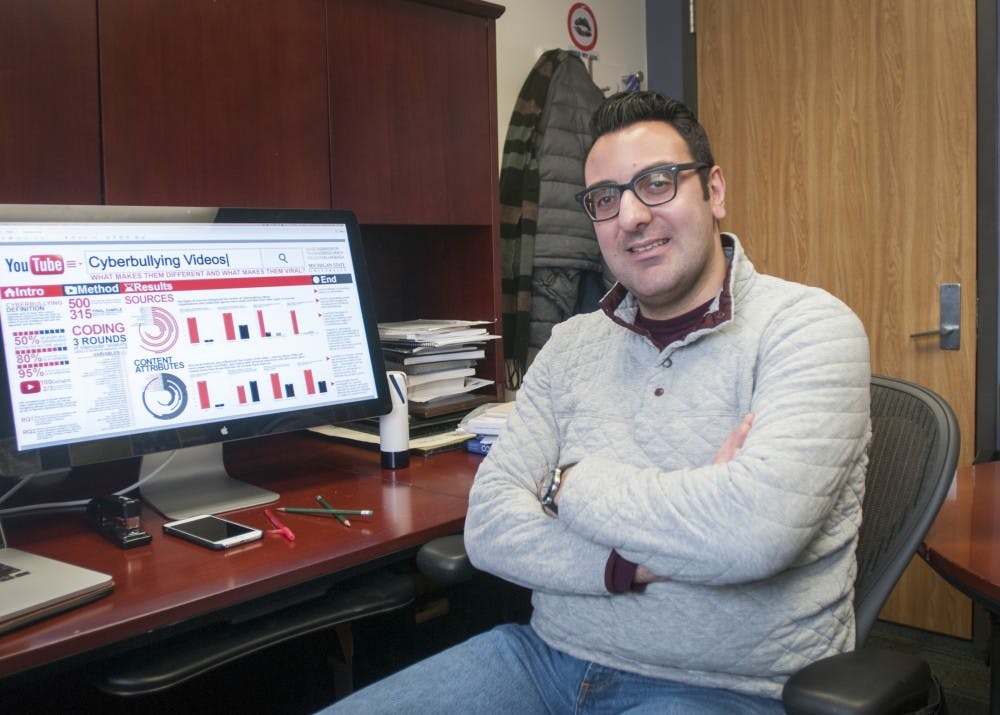The day Kevin Epling lost his son was the day he vowed to make an attempt to combat bullying.
Epling’s son Matt Epling was victim of a hazing incident during his last day of eighth grade in 2002. A little more than a month later, Epling’s son took his own life.
Epling has since became a bullying prevention advocate. He is the national co-director of Bully Police USA and a consultant for Defeat the Label. Epling has spent almost 25 years working as a video producer at MSU.
“I lost my son in 2002 to suicide … and that spurred me to become involved in what is going around surrounding the issues of bullying, which eventually led to us working with the legislature to get a law passed in his name called the ‘Matt Epling Safe School Law,’” Epling said.
The Matt Epling Safe School Law requires every school to have a policy about bullying and harassment. Epling said bullying does not affect one age group, and college students are at risk.
“Bullying is a social issue, and you are still going to run into it as a college student,” Epling said. “In the past almost 15 years, I have seen great growth and the students in all brackets coming to the aid and assistance of other students to help stem the tide of bullying and harassment, and I think that is what keeps me going.”
Epling has teamed up with assistant professor in the Department of Advertising and Public Relations Saleem Alhabash to continue his work on preventing bullying. Alhabash has spent three to four years researching the effects of bullying with a focus on cyberbullying among college students.
“Most of the focus, when we talk about bullying and cyberbullying, centers around school age populations so kids in high school, middle school, this is where a lot of emphasis is about,” Alhabash said. “Somehow we think that when people graduate high school and become college students, magically the bullying and cyberbullying stop.”
According to Alhabash’s research, 18 to 20 percent of MSU’s student populations has been cyberbullied and one in 10 admit to cyberbullying someone else.
“The reason why it’s important to study cyberbullying is because unlike bullying, cyberbullying has no time restrictions and no space restrictions,” Alhabash said. “If we are talking about bullying it happens at school it happens in a confined period of time, but cyberbullying can take much longer, it can be 24/7, there is higher reach ... but also it stays.”
According to Alhabash’s data, 70 to 75 percent of students admit to seeing someone being bullied online.
“Something I am very passionate about is to really re-define our perception of cyberbullying and bullying,” Alhabash said. “What does it mean when someone trolls another person on Twitter? It that bullying or is that freedom of speech? The lines are very fine that distinguish someone saying their opinion vs. someone saying their opinion in an aggressive away vs. someone attacking another person.”
Alhabash said he someday hopes to end bullying in schools. Until then, Alhabash will continue his research along with Epling.
Alhabash encouraged students who are dealing with bullying to seek help from professors, counselors or professionals.
“If you’re being cyberbullied, if you’re being attacked online, there are a couple of things that you should do,” Alhabash said. “The first thing is you need to document it, take a screenshot, save that email and save that text message. The second thing is you need to tell someone. You are not weak to talk about this thing.”
Support student media!
Please consider donating to The State News and help fund the future of journalism.
Discussion
Share and discuss “MSU employees look to end bullying through research, legislation” on social media.







